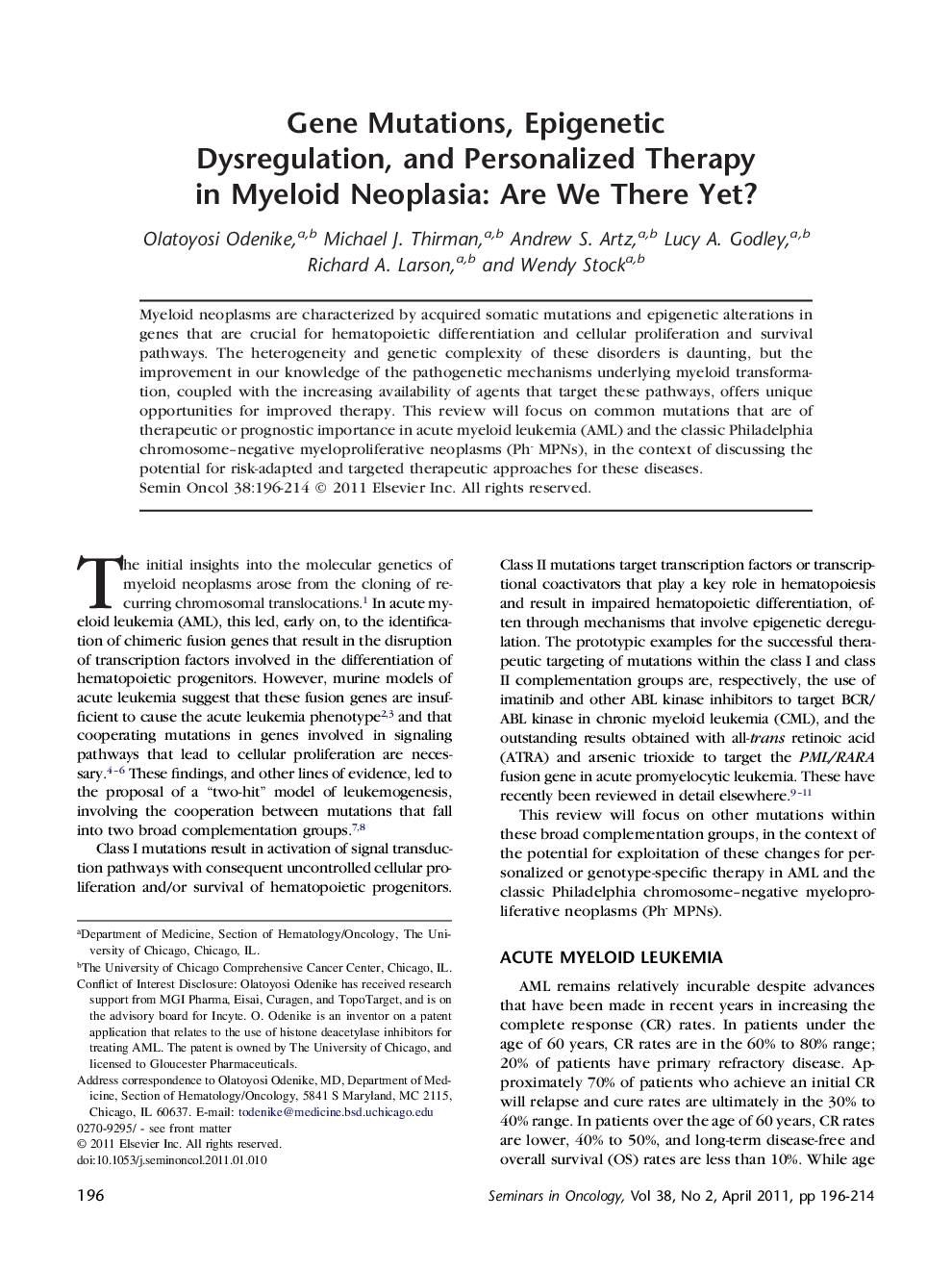| Article ID | Journal | Published Year | Pages | File Type |
|---|---|---|---|---|
| 2162193 | Seminars in Oncology | 2011 | 19 Pages |
Abstract
Myeloid neoplasms are characterized by acquired somatic mutations and epigenetic alterations in genes that are crucial for hematopoietic differentiation and cellular proliferation and survival pathways. The heterogeneity and genetic complexity of these disorders is daunting, but the improvement in our knowledge of the pathogenetic mechanisms underlying myeloid transformation, coupled with the increasing availability of agents that target these pathways, offers unique opportunities for improved therapy. This review will focus on common mutations that are of therapeutic or prognostic importance in acute myeloid leukemia (AML) and the classic Philadelphia chromosome-negative myeloproliferative neoplasms (Ph- MPNs), in the context of discussing the potential for risk-adapted and targeted therapeutic approaches for these diseases.
Related Topics
Life Sciences
Biochemistry, Genetics and Molecular Biology
Cancer Research
Authors
Olatoyosi Odenike, Michael J. Thirman, Andrew S. Artz, Lucy A. Godley, Richard A. Larson, Wendy Stock,
